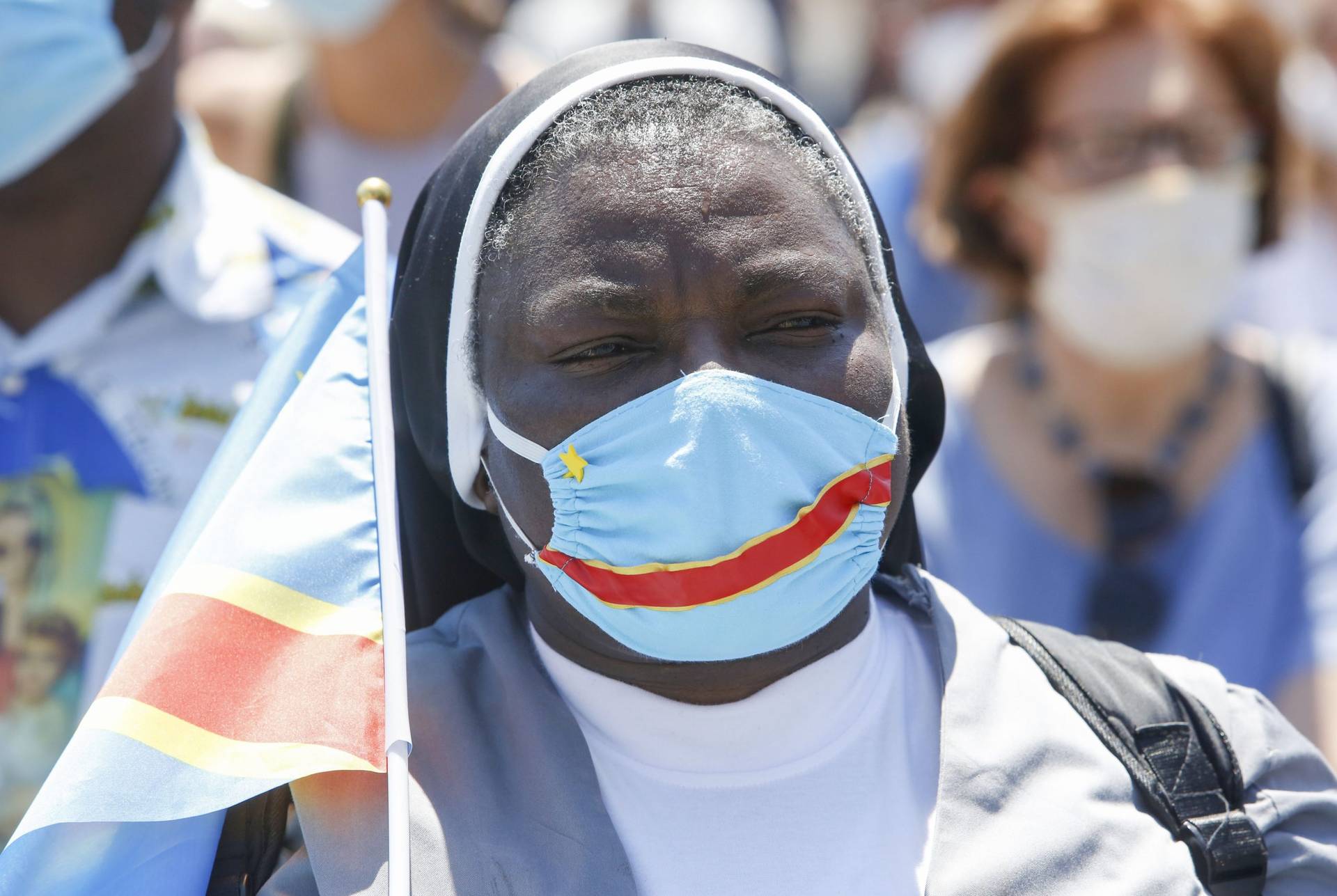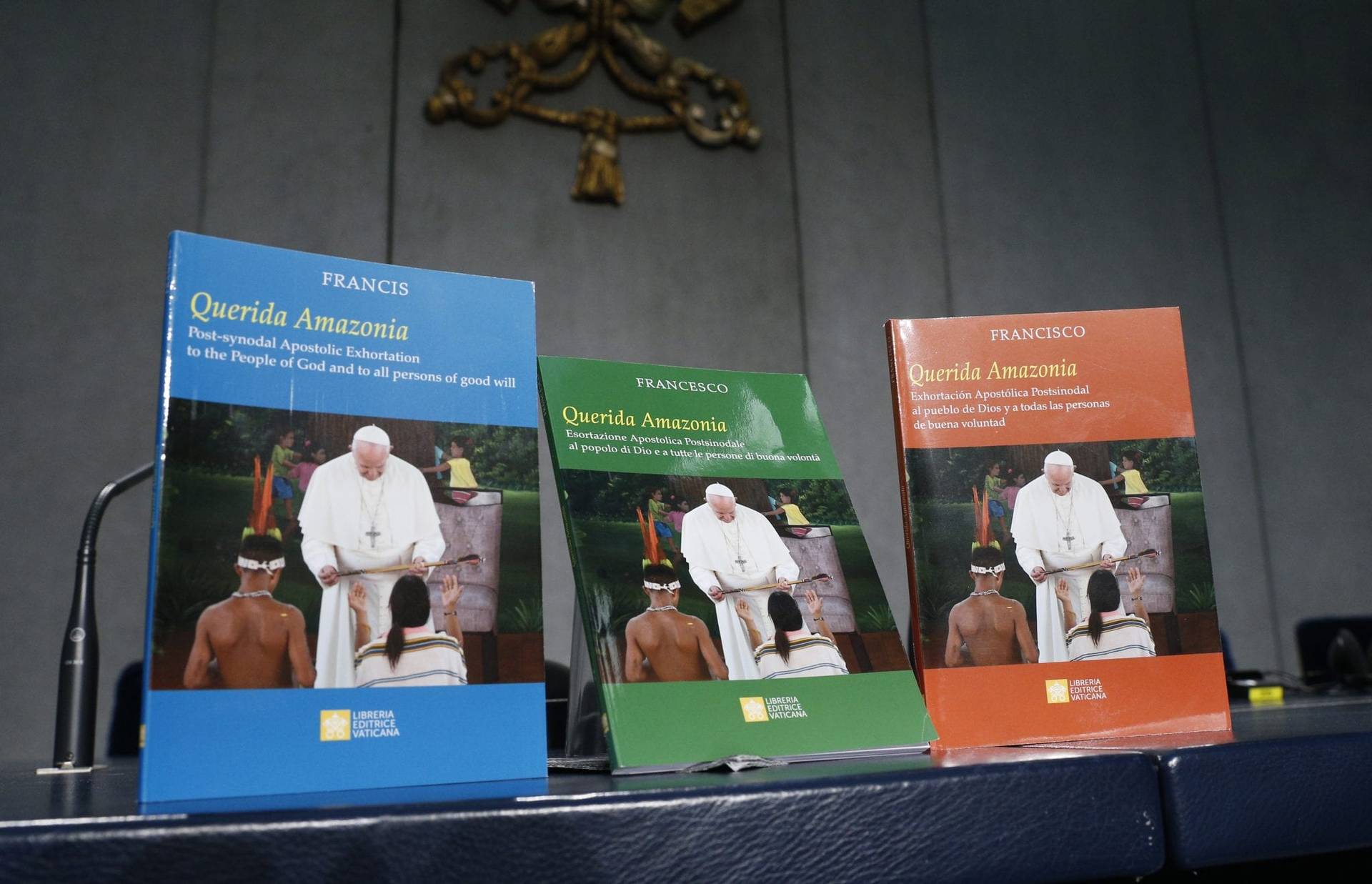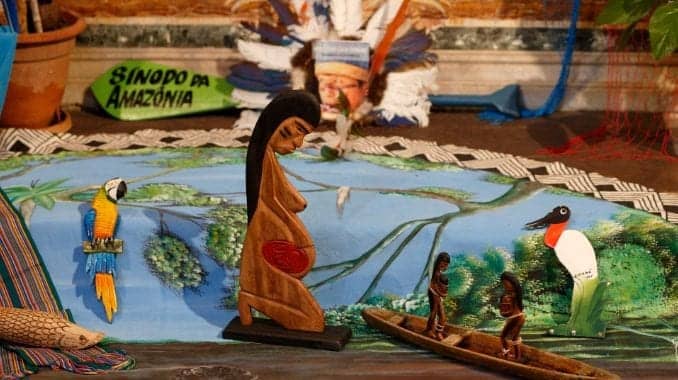ROME – An indigenous organization has denounced the theft and destruction of wooden statue of a naked pregnant woman from a church in Rome on Monday.
The statue has been the center of controversy during the ongoing Synod of Bishops on the Amazon, with Catholic traditionalist groups calling the indigenous symbol a pagan idol.
However, several synod participants have denied the accusation, saying the statue is simply a representation of life.
The statue had been placed in the Church of Santa Maria in Traspontina, just down the street from St. Peter’s Basilica.
On Monday, two men filmed themselves taking the statue from the church, breaking it into pieces, and throwing it into the Tiber River.
“We deeply regret and at the same time denounce that in recent days, we have been victims of acts of violence, which reflect religious intolerance, racism, vexatious attitudes, which above all affect indigenous peoples, and demonstrate a refusal to build new paths for the renewal of our Church,” says a statement released on Tuesday by Amazonia Common Home, an umbrella group that brings together several Catholic associations.
They also warned that these acts can “be repeated or escalate” and have greater effects.
In their statement, which was also shared through the Synod’s Twitter account, the 30 Catholic organizations that make up Amazonia Common Home, including Caritas Internationalis and the ecclesial Pan-Amazonian network REPAM, noted that their presence and initiatives during the synod have been “peaceful at all times, always in a prayerful attitude and asking for the action for the Spirit in this synodal process.”
“We will not respond to these attitudes of violence and in evangelical fidelity we recognize and respect diversity in other expressions of the encounter with Christ,” they wrote, before urging Catholics to remain united and committed in the defense of life and the Amazon.
The statement makes no mention of the wooden statue that was stolen on Monday.
In social media and through various news outlets, several synod critics have been verbally abusive towards the indigenous, with sometimes racist and xenophobic remarks.
Criticism over the wood carving – which has long been a feature of the activities of an itinerant group of Catholic missionaries in the Amazon – began Oct. 6, when two of them were featured at a prayer service in the Vatican Gardens. One of them was presented to the pope the following day.
Traditionalist Catholics claim the statue is a representation of the Pachamama, a pagan symbol of mother earth. However, the Pachamama is not featured in Amazonian indigenous populations, as it’s a goddess revered by the Incas, the indigenous people of the Andes.
According to Father Fernando Lopez, a Jesuit, and a member of the “Itinerant Group” of missionaries who work in the Amazon, the symbol represents life.
“We were all born from a mother, and we all have a mother who was pregnant and delivered us to life,” he told Crux. “It’s a mystery, life itself, that signifies in a way that God is also mother, he’s engendered us and cares for life.”
Follow Inés San Martín on Twitter: @inesanma
Crux is dedicated to smart, wired and independent reporting on the Vatican and worldwide Catholic Church. That kind of reporting doesn’t come cheap, and we need your support. You can help Crux by giving a small amount monthly, or with a onetime gift. Please remember, Crux is a for-profit organization, so contributions are not tax-deductible.












